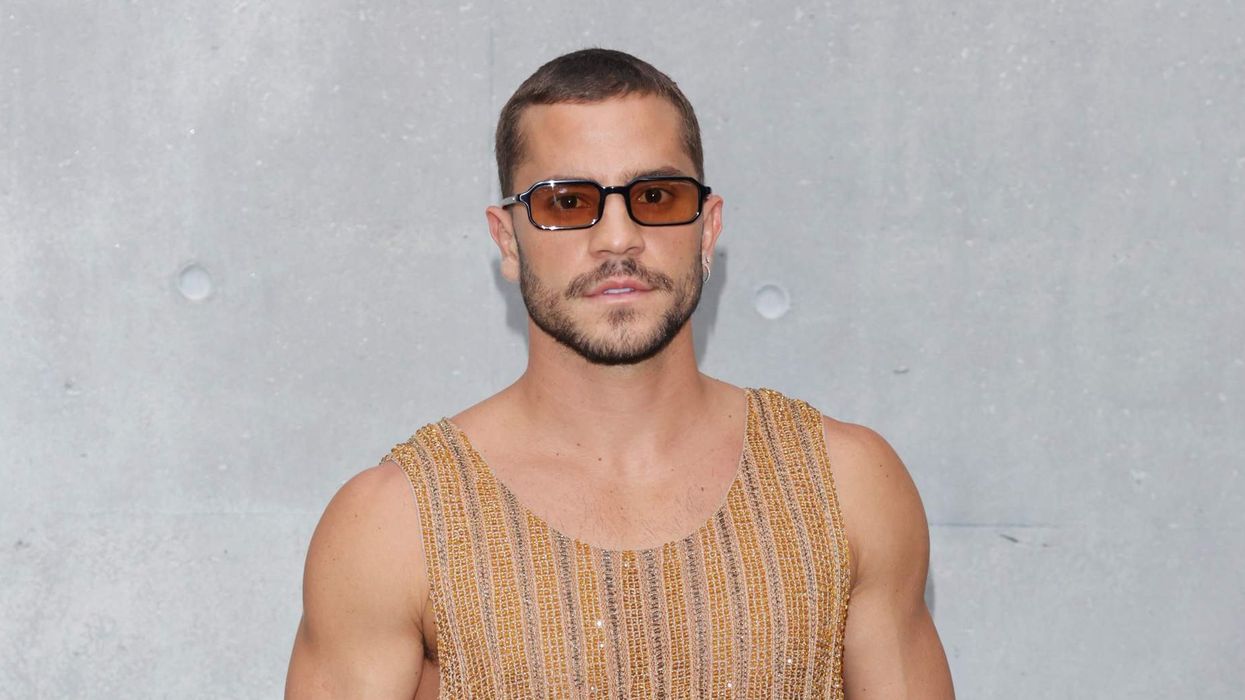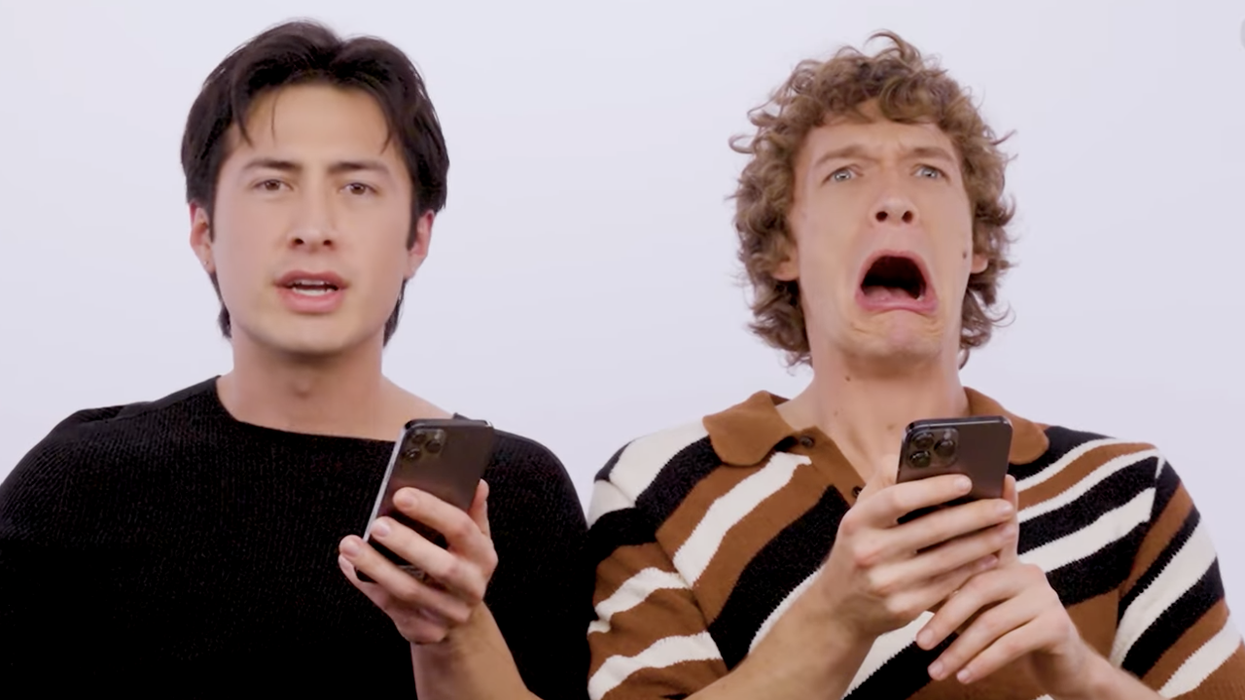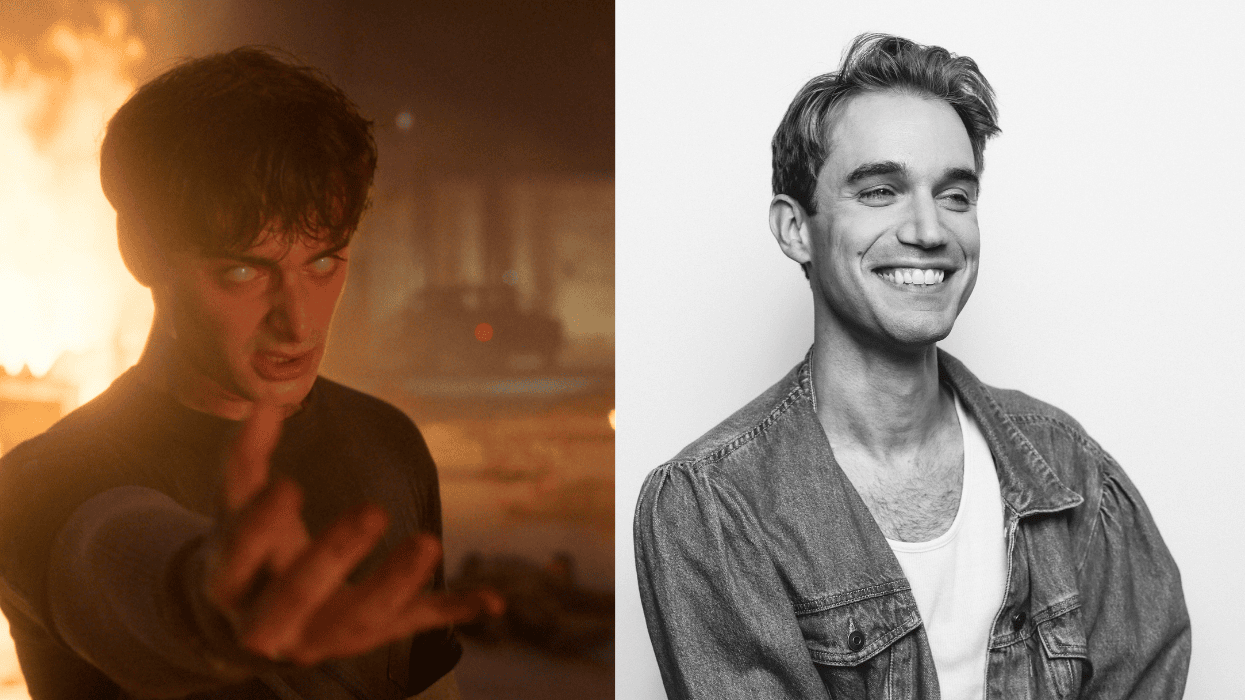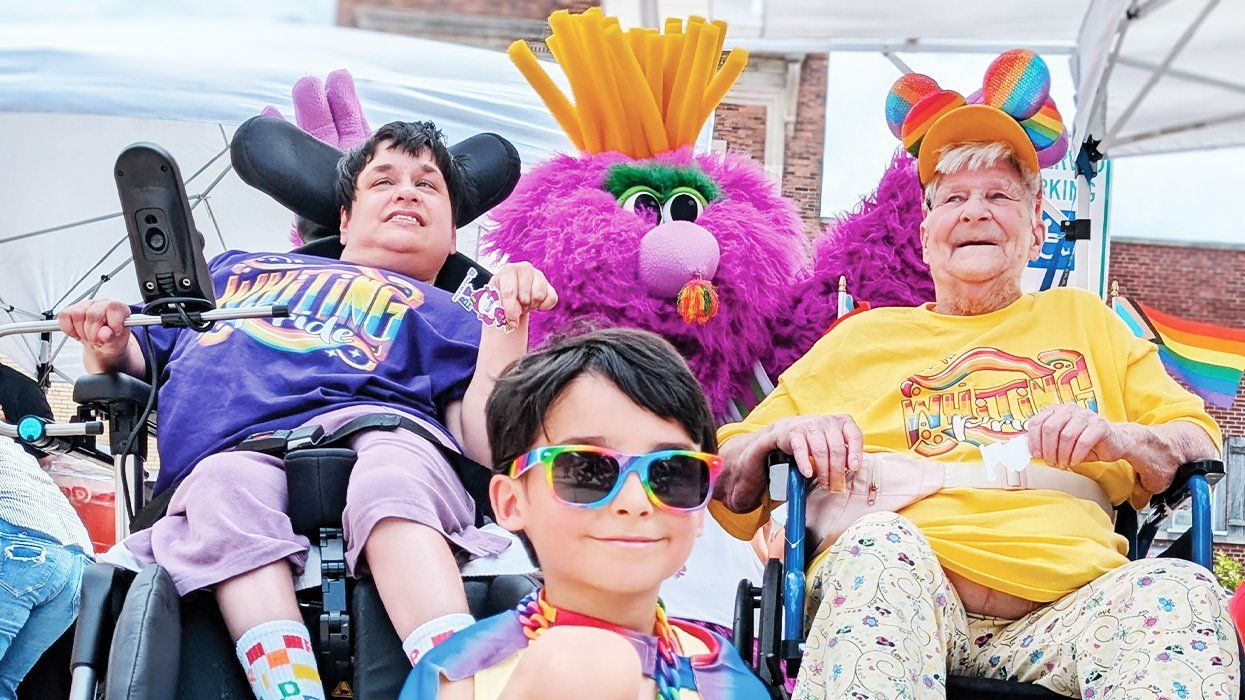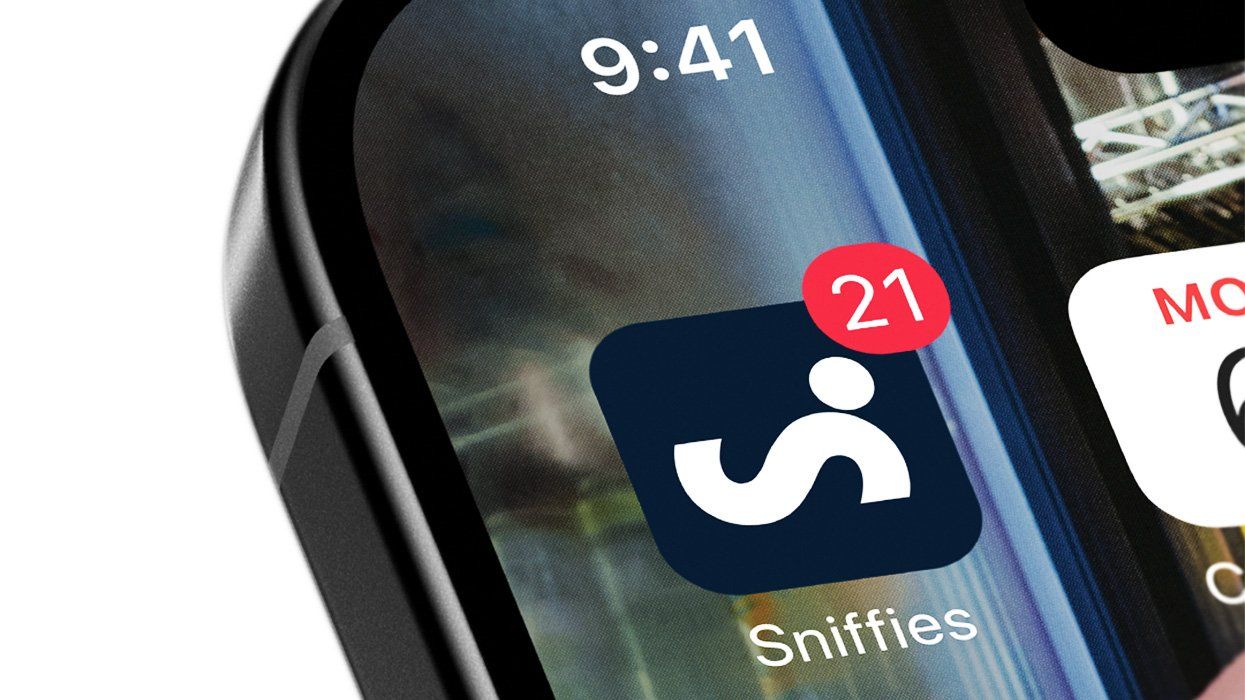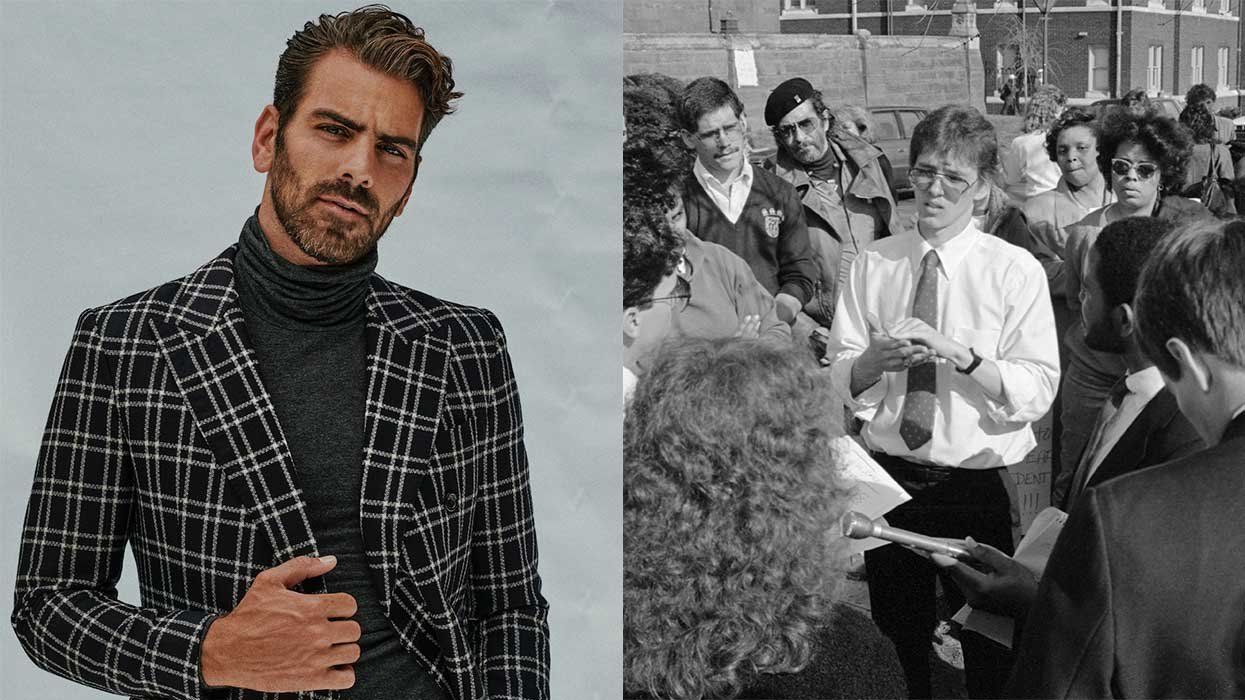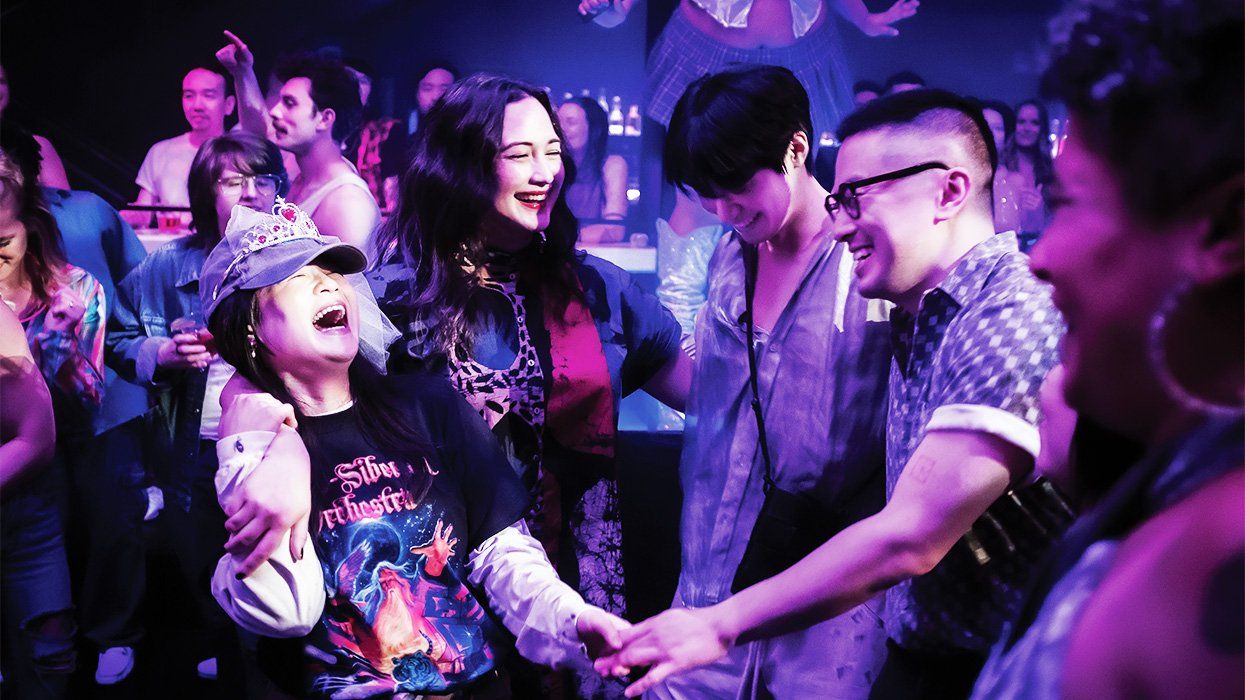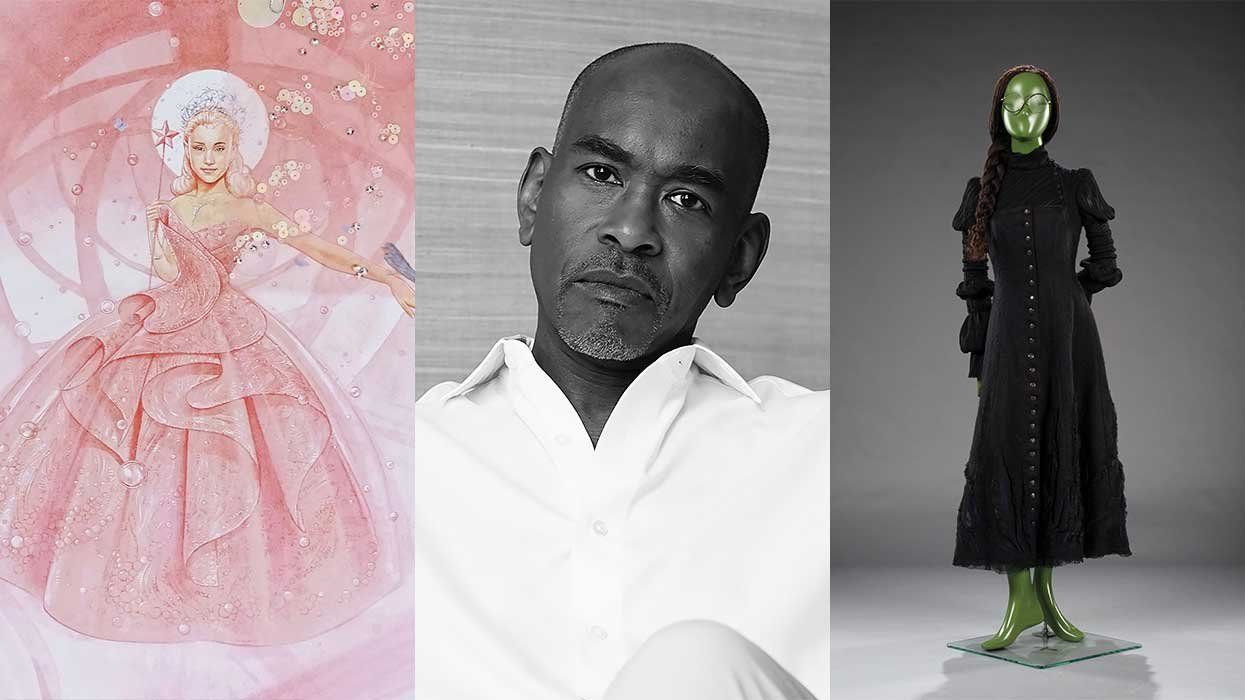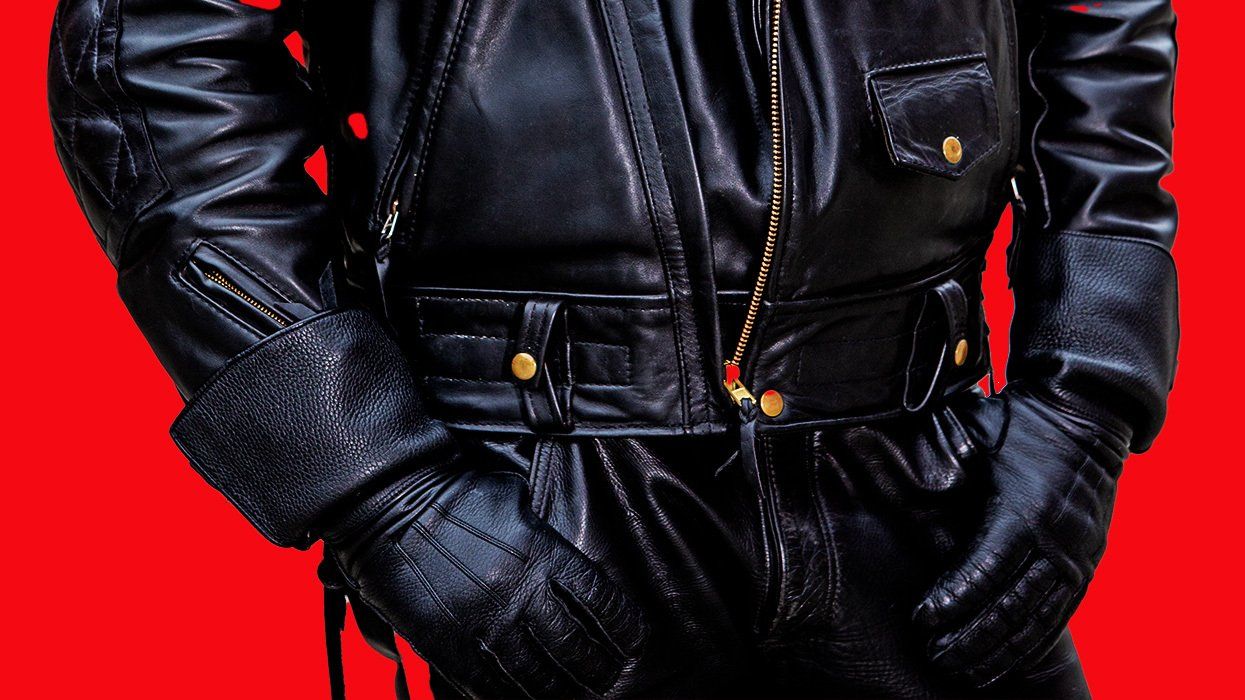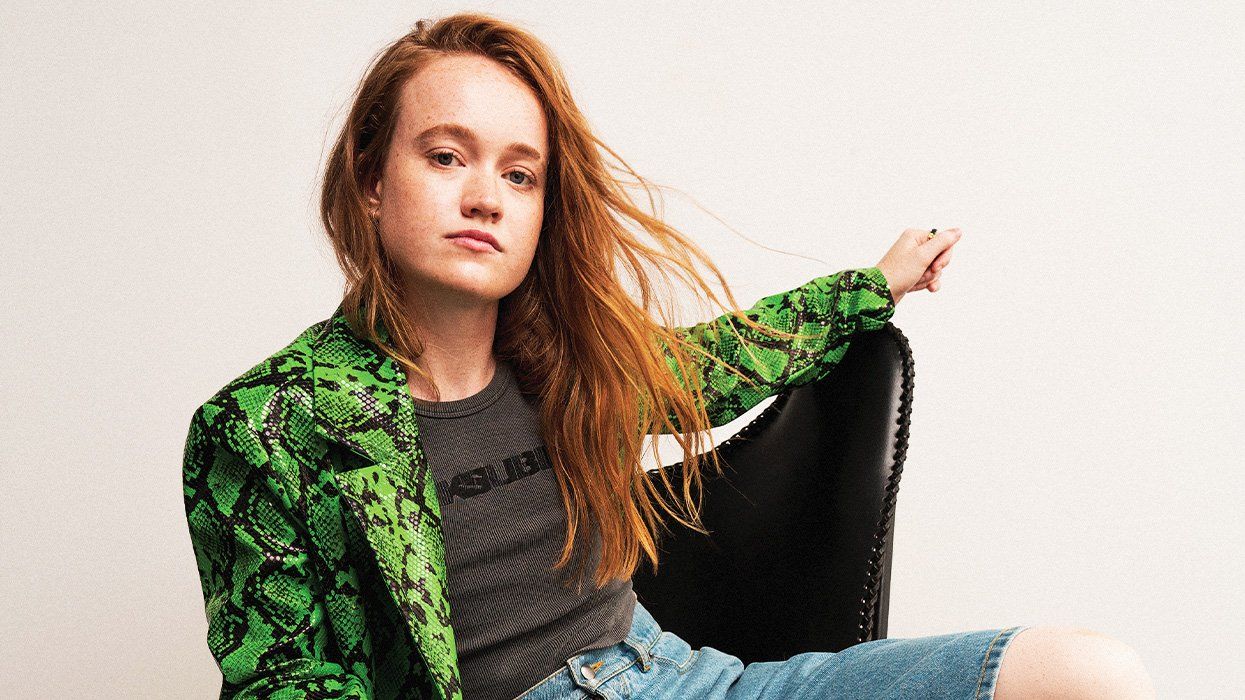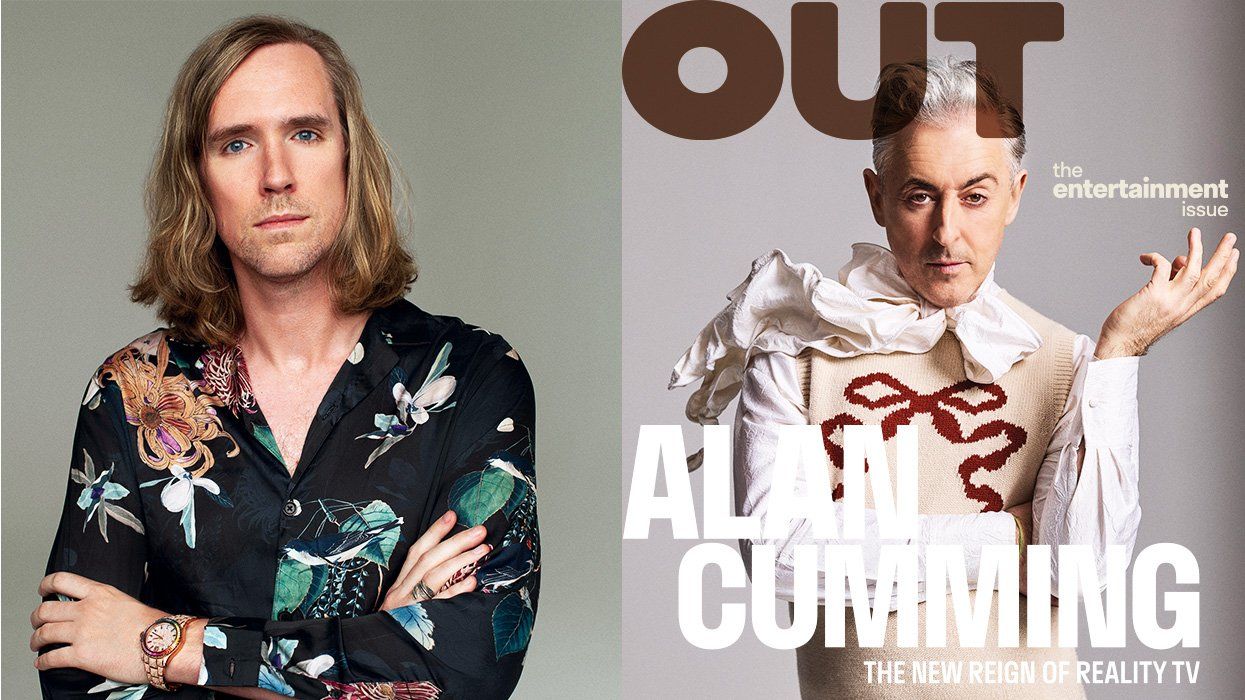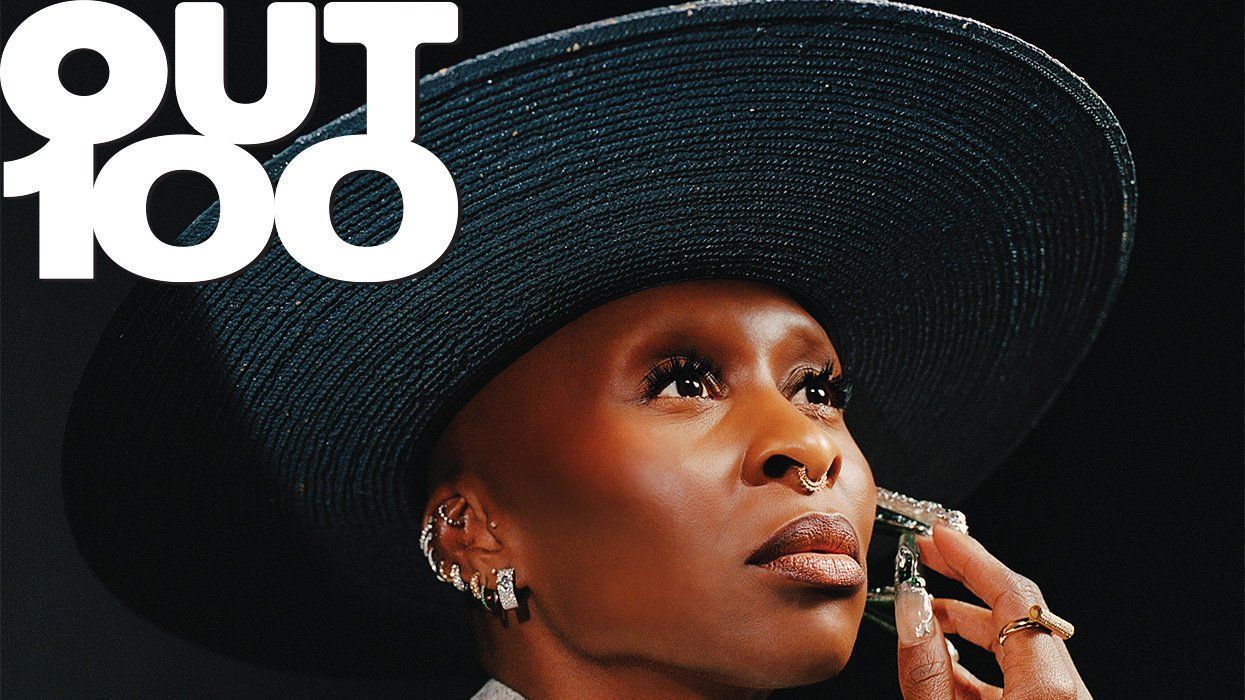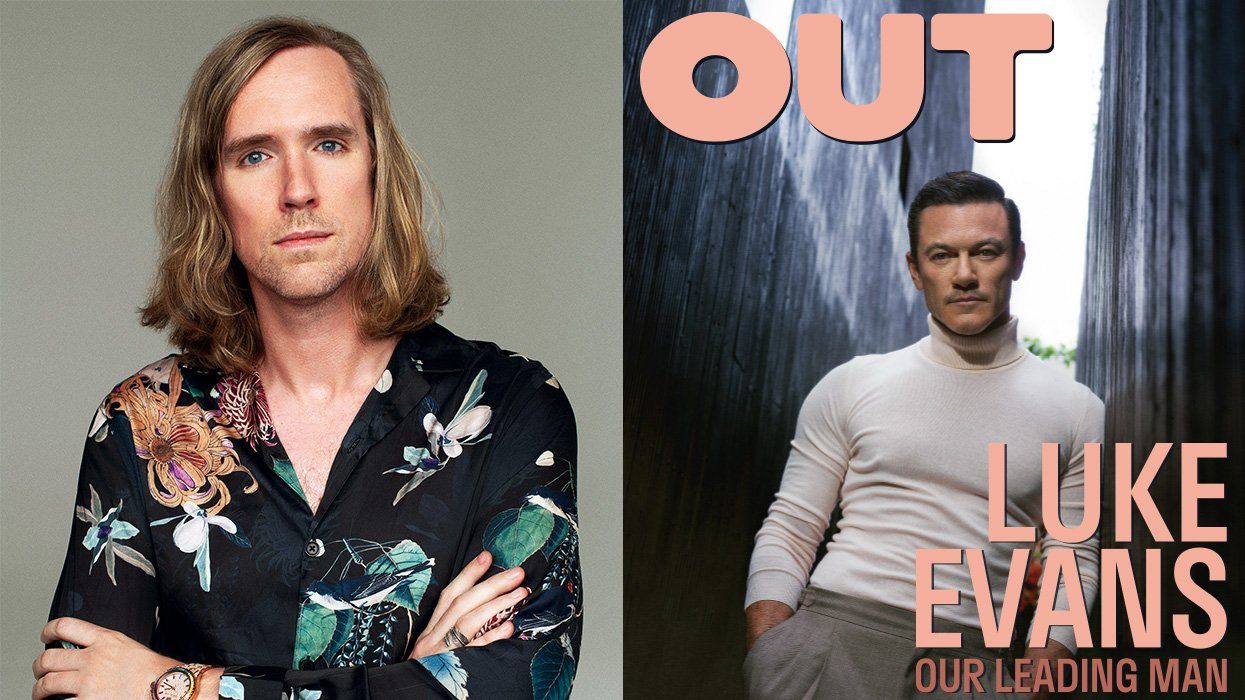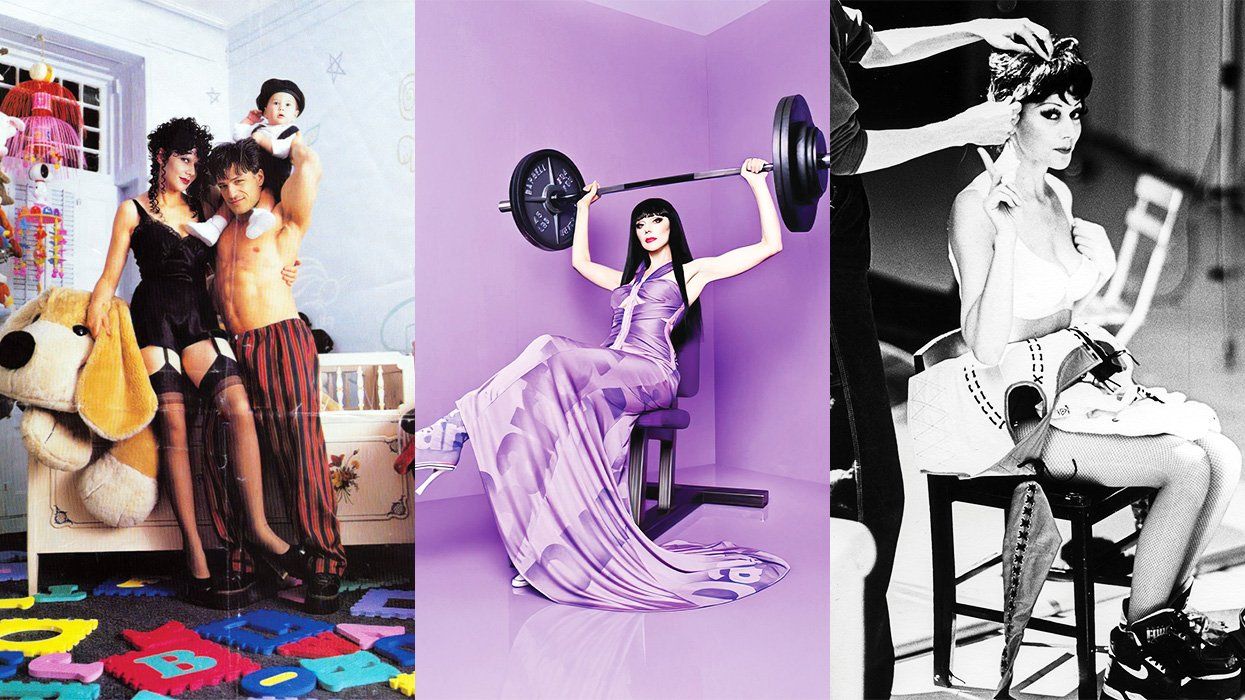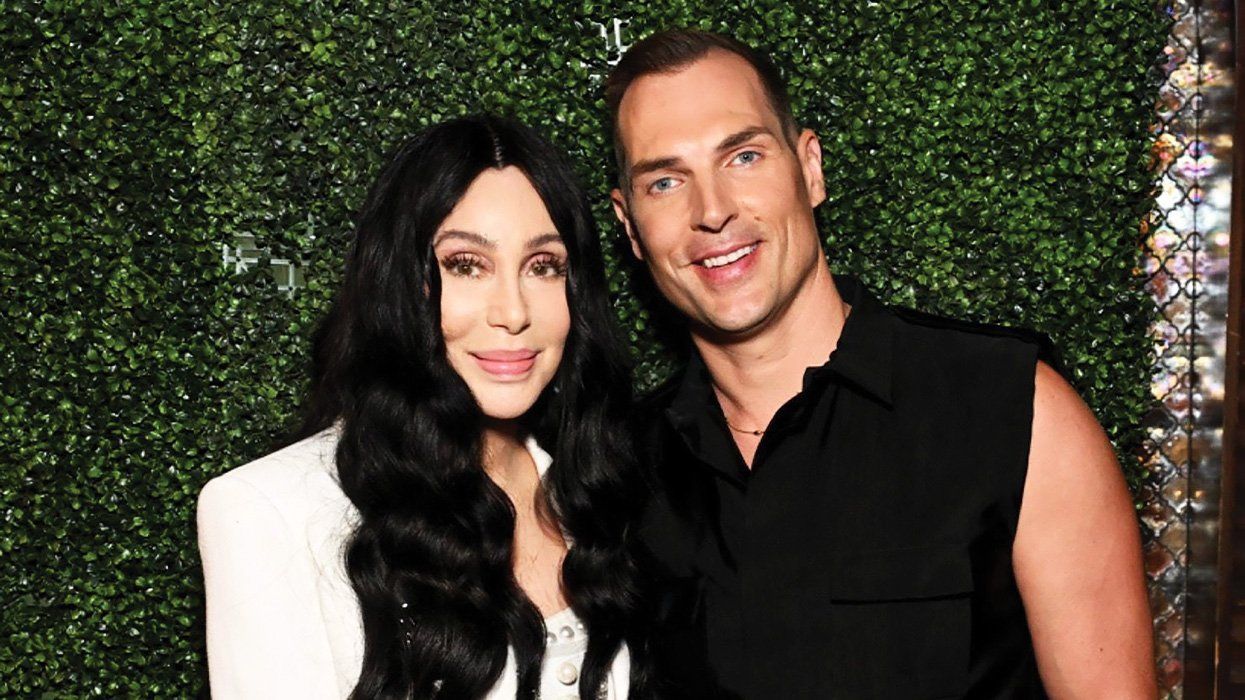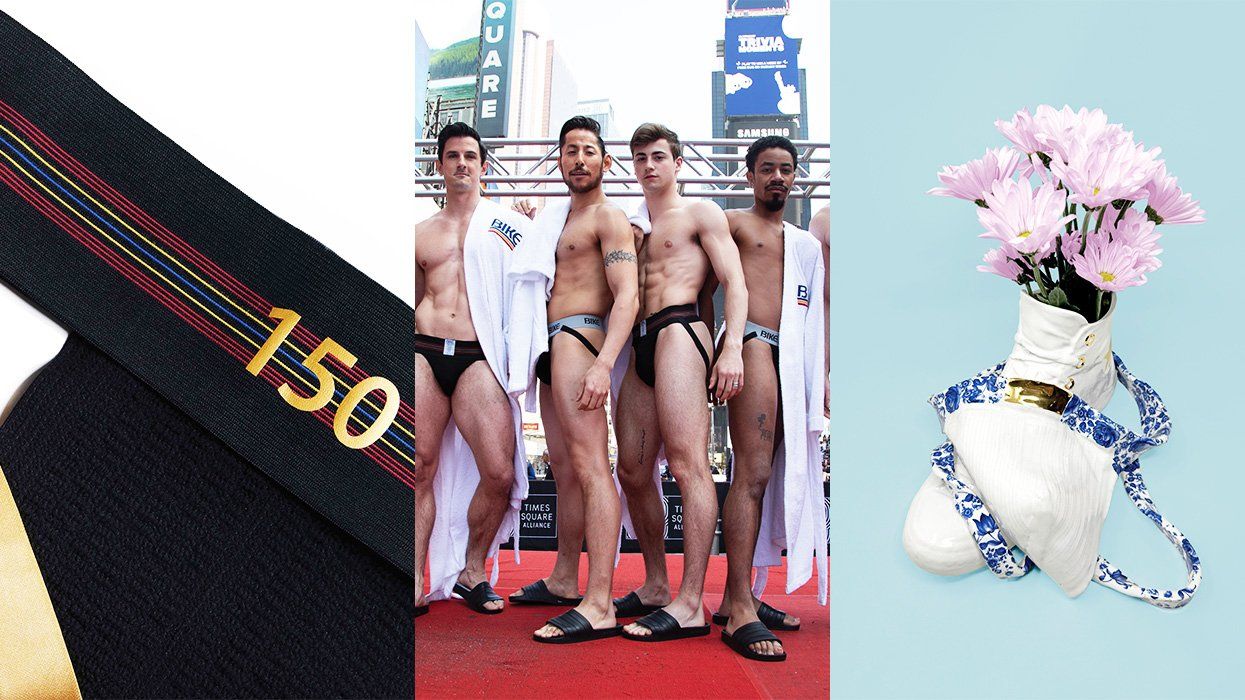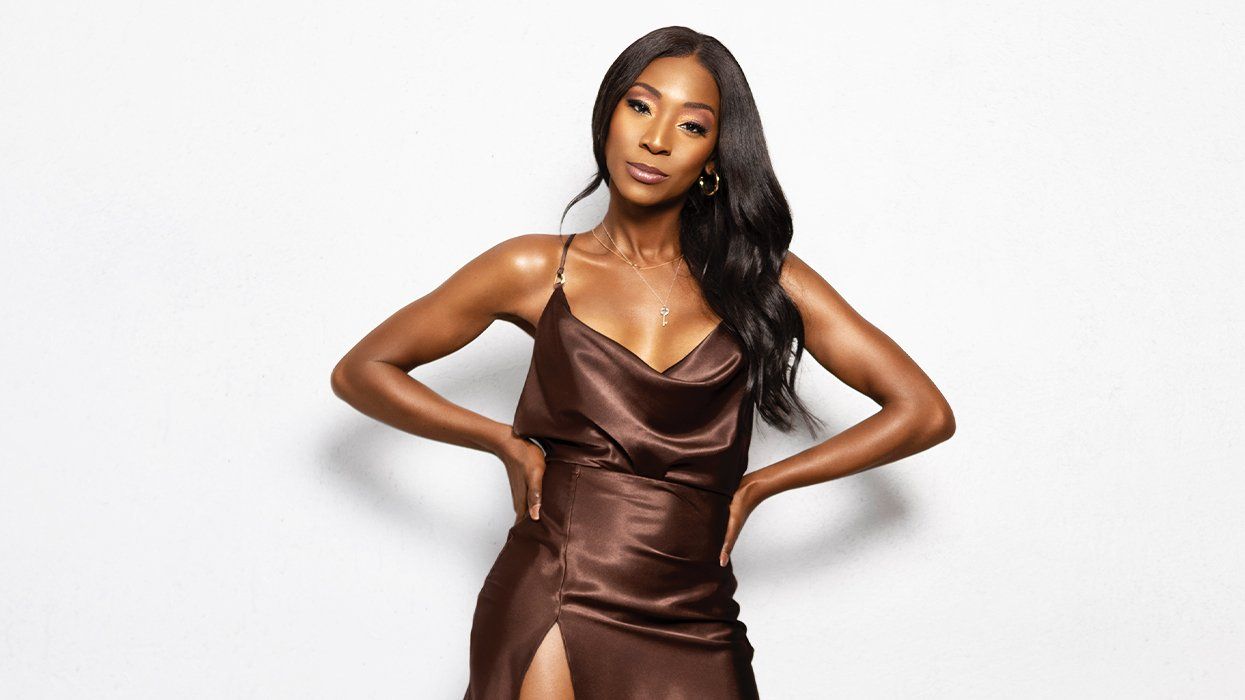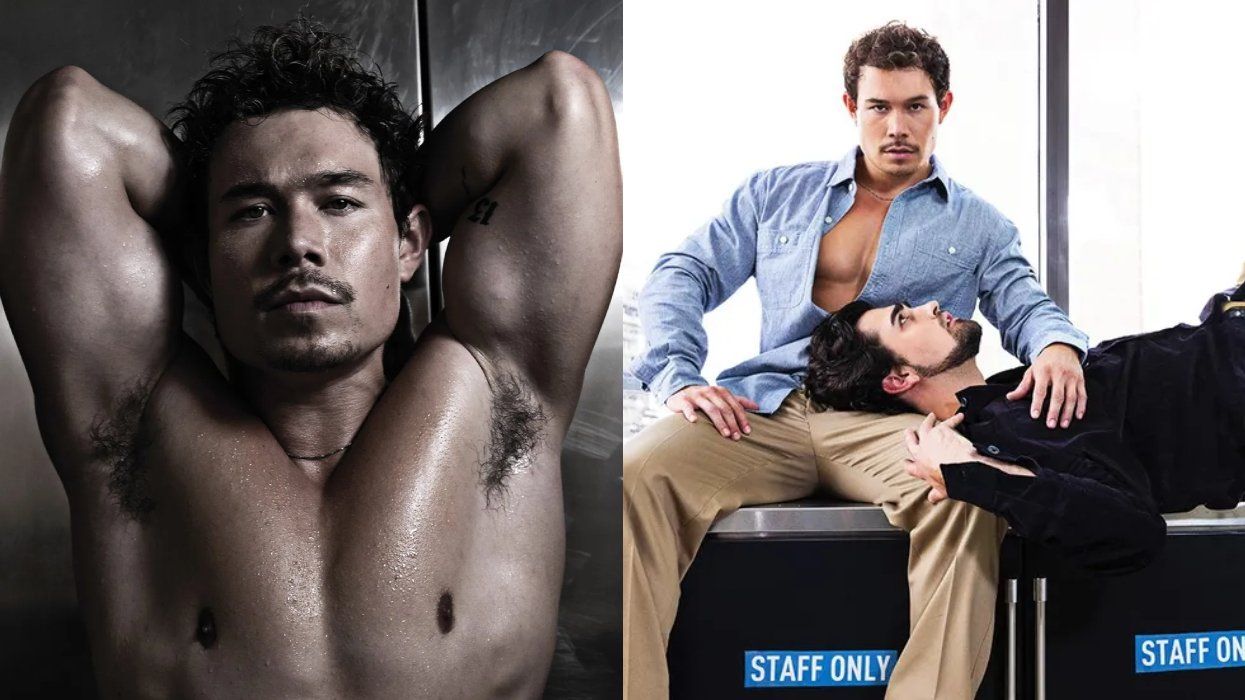Downton Abbey: A New Era holds some surprises but also promises the qualities audiences know and love about the Downton franchise -- the iconic characters, the upstairs and downstairs drama, and the queer inclusivity.
The new film finds some of the Crawley family and their servants journeying to the south of France to inspect a villa that Dowager Countess Violet Crawley (Maggie Smith) has mysteriously inherited, while others stay behind at the abbey to deal with a film crew shooting there. Among those involved in the production is Guy Dexter, a closeted gay movie star played by Dominic West.
As Guy drops hints about his sexual identity, mostly through exchanges with gay butler Thomas Barrow (Robert James-Collier, both pictured above), the portrayal continues the tradition of queer inclusion in projects from Downton creator and writer Julian Fellowes, with examples such as Barrow, The Gilded Age's Oscar van Rhijn, and several characters in Gosford Park.
"I got quite interested, really, over the past years, in the predicament of being gay before the modern age," says Fellowes, a straight ally. There's no reason to think the percentage of LGBTQ+ people in any era was less than it is now, he notes. "The difference is that those societies were very intolerant of this sizable minority, and they had to make a choice, really, either to live outside society or to be within society and essentially live behind a mask in a sort of disguise. And that must have created tremendous tension, tremendous depression, tremendous responses that people had to deal with, and that was even more so for people in the public eye."
"We talk as if this is all a thing of the past -- of course, it isn't," he continues. "There are plenty of leading men and leading ladies now who would be quite nervous of revealing their inner self if they had a big fan following, and that makes me very sad. It makes me sad to think of people having to live essentially a kind of lie.... I think it's worth reminding audiences what people had to put up with very recently."
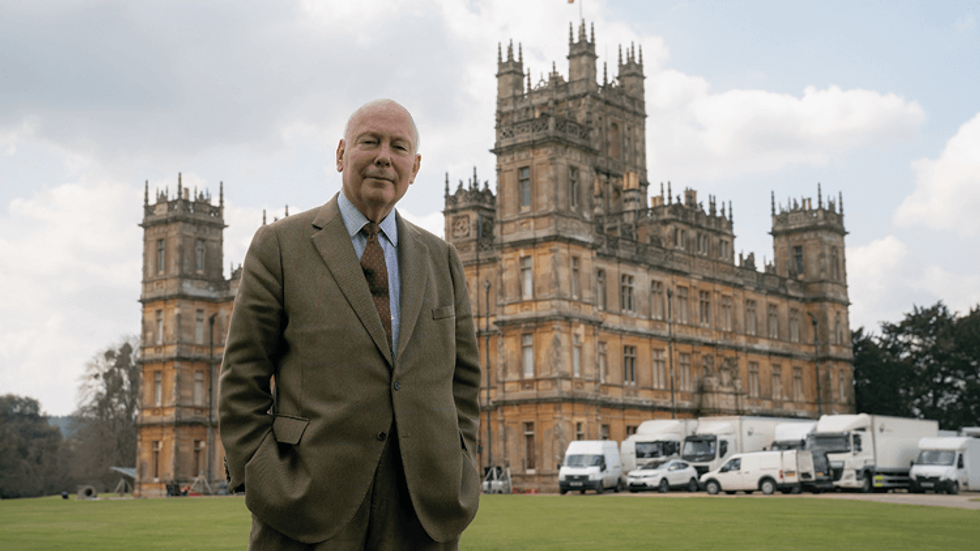
He recalls that at one point in the Downton TV series when Barrow made a pass at another member of the staff, that man reported Barrow to the police. Some viewers didn't believe such things really happened, and Fellowes got letters to which he responded that being gay was not only illegal in the 1920s, it was illegal in his own youth in the 1960s.
"This is something that plenty of people have living memory of," he points out. The situation of LGBTQ+ people isn't perfect now by any means, but "my God, it's an improvement over what it was half a century ago," he says.
Fellowes says it's hard to answer where his allyship comes from, but he's spent his whole working life in show business, a generally accepting world, so he's had many LGBTQ+ colleagues, including the composer-lyricist team of George Stiles and Anthony Drewe, with whom he's created three stage musicals. "I suppose that rather spurred me on," he says of the relationship with Stiles and Drewe. "We obviously talked about what it had been like growing up in a world that was less forgiving and less tolerant, and learning to trust people and all those kinds of things that people had to go through...still have to go through."
He thinks upper-class people like the Crawleys were more accepting than the middle class of their era. In his own life, one of his brothers had a godfather who was a gay earl. His experience is that the upper classes didn't mind whatever people did in their personal lives as long as it didn't lead to public scandal. The U.K., he adds, doesn't have the religious right tradition that has fostered anti-LGBTQ+ sentiment in the U.S.
Fellowes's depictions of gay people aren't one-dimensional, and the characters are hardly saints; some could even be cited as examples of the "scheming gay" trope, like Oscar in The Gilded Age or Barrow in the early seasons of Downton.
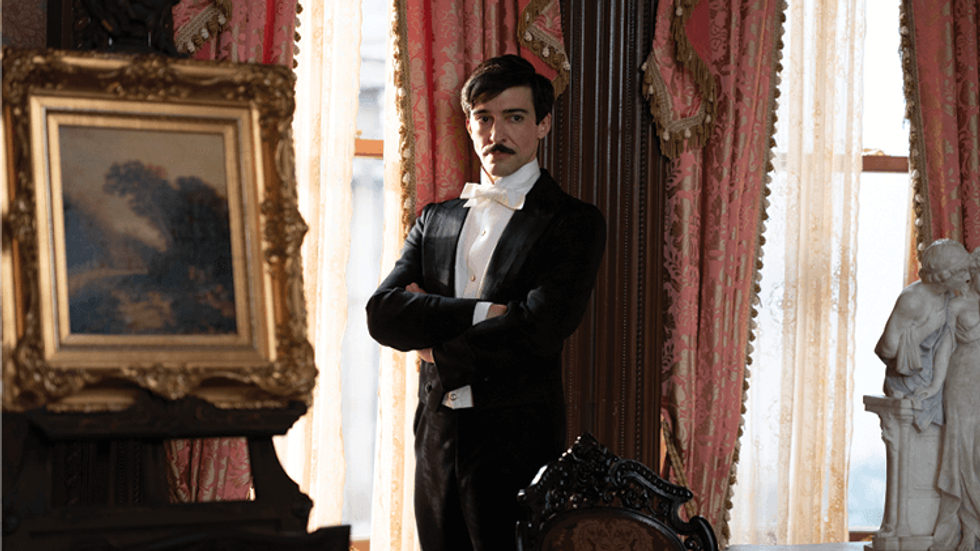
"What I hope...was that at the beginning of Downton, [Barrow] would be seen as devious and untrustworthy and all of those kind of things, but as you got to know him and as you got to know the predicament he was in, you started to understand that it was very difficult for him to trust people and that it was very difficult for him to relax and to become open and friendly," Fellowes says. Then Barrow opened up to head housekeeper Mrs. Hughes and others. "You gradually understand that for most people, being gay in the 1920s, that it made you defensive...you were always one step away from disaster."
"I think by now, he's quite a sympathetic character that we're all rather rooting for," he says of Barrow. He hopes the portrayal will help change some minds. "That would be my dream, anyway," he adds.
Inclusivity, of course, isn't the only reason that Fellowes's projects appeal to LGBTQ+ audiences. In addition to plain old good drama, there are the strong women characters these viewers love, such as Downton's Lady Mary and the Dowager, and The Gilded Age's Agnes van Rhijn, Ada Brook, and Bertha Russell. Asked if he's aware these characters are icons to the community, Fellowes responds, "I'm thrilled if they are. I couldn't be more delighted. I've always lived in a world of very strong women." He's also often written about what is usually called high society, which was run by women even when they couldn't run businesses. "I haven't invented the idea that strong women were running society -- they were," he says.
The new Downton movie reveals that Lady Mary (Michelle Dockery) has some heretofore untapped talents as the film crew deals with the transition from silent to sound movies, and HBO has ordered a second season of The Gilded Age, so we'll get to see its characters evolve too. (The second season is in preproduction, and air dates haven't been set.) As to whether A New Era is the end of Downton Abbey, Fellowes isn't sure.
"I've learned to never say never," he says. He didn't expect the TV series to run as long as it did, but there were more seasons, followed by one movie and now this movie. "I think it's a suitable finish if this is the finish of what has been a tremendous adventure for all of us, really." But if there is demand for more of Downton, he adds, "I can't see myself digging in my heels" against it.
Downton Abbey: A New Era opens in theaters May 20.
This article is part of Out's May/June 2022 issue. Support queer media and subscribe -- or download the issue through Amazon, Kindle, Nook, or Apple News.
Related | Cover Stars: Hacks Is the Next Generation of Queer TV Comedy



